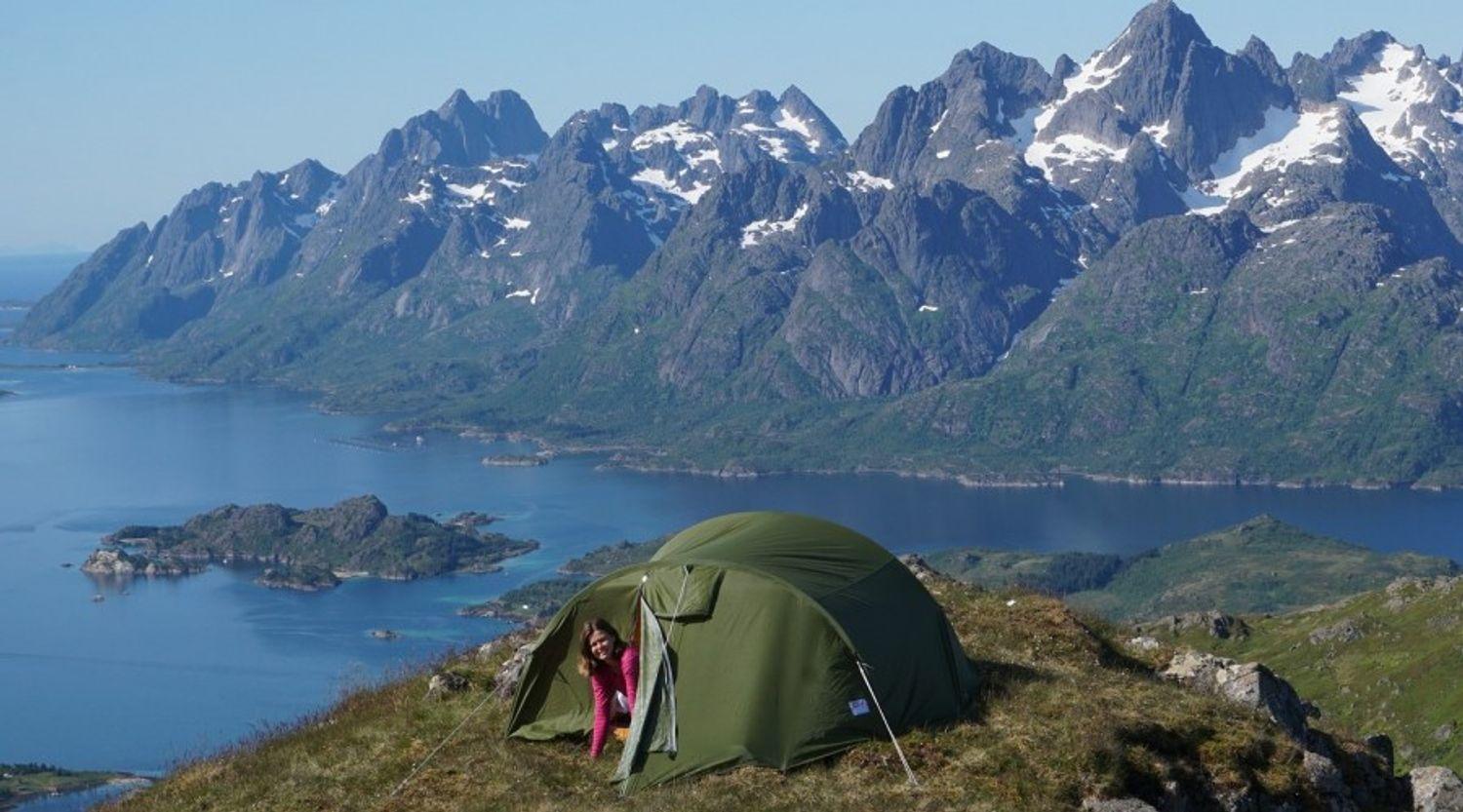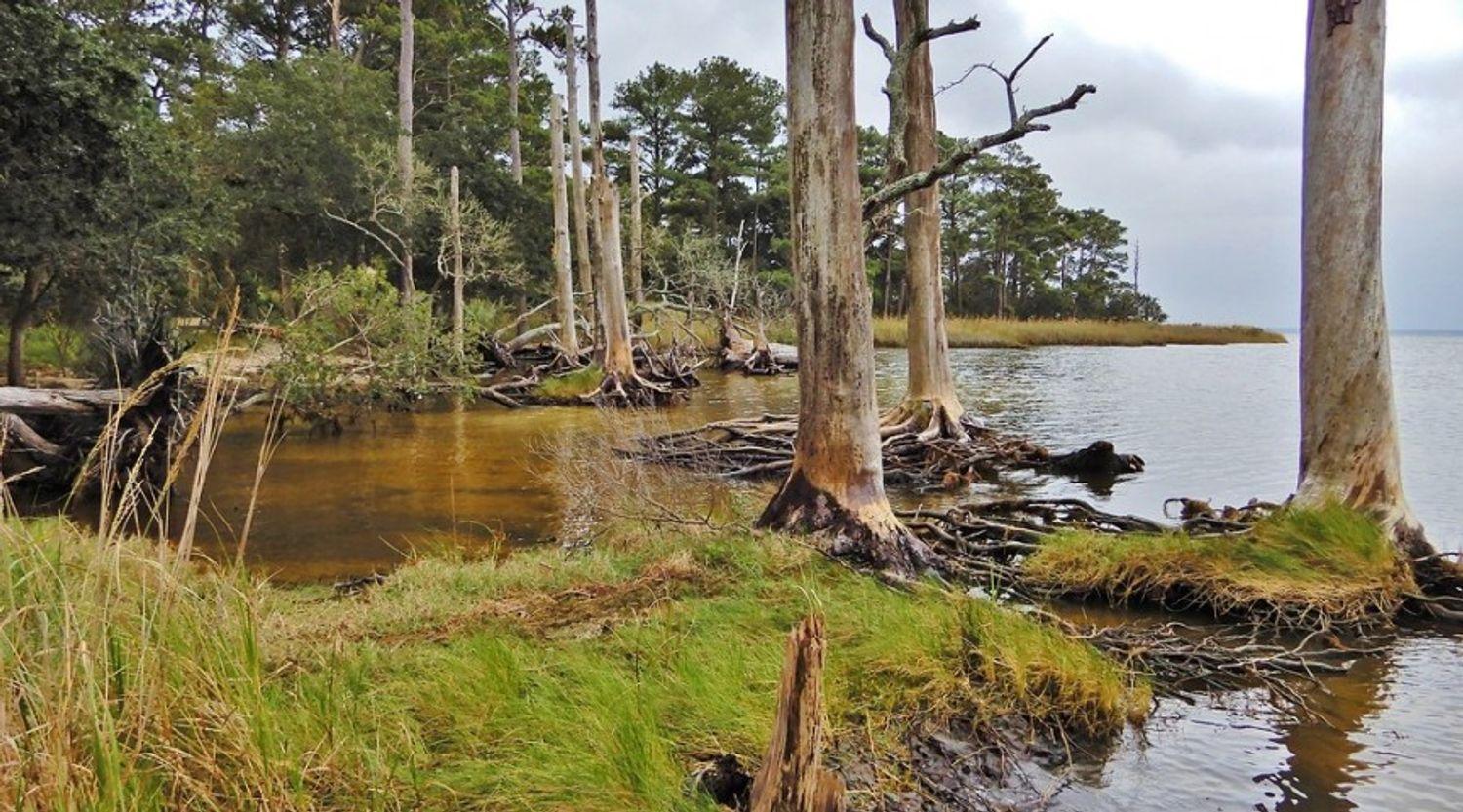Ocean conservation is also known as marine conservation. The health of all life on this planet depends on a healthy ocean. Ocean conservation is the conservation of marine species and ecosystems in oceans and seas worldwide.
It encompasses not merely conservation and restoration of species, populations, and habitats but also mitigating human actions such as overfishing, habitat destruction, pollution, whaling, and different issues that impact ocean life and habitats.
We always associate forests with being the lungs of the planet, and while they are an extremely crucial element of our ecosystem, the ocean is precisely the world's biggest life support system, comprising 99 percent of the earth's livable habitat and generating half of the oxygen in the atmosphere.
A healthy ocean isn't just significant for the animals that dwell in there, but for every single being on the earth, land, or marine. Healthy ocean ecosystems are crucial for human survival.

Ocean, or marine conservation, is a fast-growing field directed at tackling the issues that face the oceans, and eventually everything, through methods such as research, conservation, restoration, and awareness.
There are a number of stuff that affect the ocean both negatively and positively. Tourism can result in harm, but it can likewise facilitate sustainable development which enhances the livelihoods of locals and the conservation of natural resources.
A few nations, such as Palau and New Zealand, have acknowledged the significance of sustainability and ocean conservation and have laid this notion at the vanguard of travelers' thoughts by asking them to sign an eco-pledge when travelling their nations.
History of Ocean Conservation

People became more conscious of the consequences on the climate in the 1960s and 1970s. Around this same period, Jacques Cousteau brought the wonder of the oceans to people through TV.
As scuba diving technology enhanced, further people took to the undersea world. Whalesong recordings intrigued the world, assisted people in acknowledging whales as sentient lives, and directed to whaling bans.
Furthermore, in the 1970s, laws, and regulations were approved in the U.S. considering the conservation of overfishing i.e. Magnuson Stevens Act, marine mammals i.e. Marine Mammal Protection Act, protection of endangered species i.e. Endangered Species Act, and clean water i.e. Clean Water Act, and establishing a National Marine Sanctuary Program i.e. Marine Protection, Research, and Sanctuaries Act.
In addition, the International Convention for the Prevention of Pollution from Ships was passed to diminish ocean deterioration.

In more recent years, as ocean problems appeared to the vanguard, the U.S. Commission on Ocean Policy was established in 2000 to "develop recommendations for a fresh and comprehensive national ocean policy."
This directed to the formation of the National Ocean Council, which is authorized to enforce the National Ocean Policy, which organizes a framework for managing the ocean, Great Lakes, and coastal regions to facilitate more coordination between the Federal, state, and regional agencies charged with supervising ocean resources and utilizing marine spatial planning effectively.
Importance of Ocean Preservation

The Ocean is the heart of the earth. Water encircles additional than two-thirds of the planet's surface. Sea plants generate 70% of the oxygen we breathe, and the deep waters are dwelling to wildlife and some of the largest beings on the planet. It provides us with food, employment, life, recreation, and sailing. Without it, we cannot survive.
Oxygen Production

It is always believed that rainforests are the major source of oxygen on the earth, but the reality is that rainforests are merely responsible for 28% of the oxygen on the planet while oceans are responsible for 70%.
The Ocean does not need trees, the phytoplankton has got it filled in. Phytoplankton is a microscopic plant, an element of the plankton, which devours its life being carried by oceanic tides.
Practically, these small organisms act in a similar kind as tree leaves do on the soil. Phytoplankton absorbs carbon dioxide and discharges oxygen. We do not watch them, so we tend to overlook about them if we even know about them in the first place.
They are one of the smallest beings on the earth, but one of the most significant to have around, keeping us alive.
Regulating Climate

In multiple ways, the ocean operates our climate. It absorbs the heat and carries warm water from the equator to the poles, and cold water from the poles to the tropics. Without these tides, the temperature would be extreme in some areas, and exceptional locations would be livable.
It oversees rain and droughts. Carrying 97% of the water of the earth, nearly all precipitation that falls over on land comes from the ocean.
The ocean soaks up CO2, to keep the carbon cycle, and consequently temperatures on the planet, in balance. It is like our worldwide climate management system.
Source of food

The ocean is the primary source of protein for more than a billion people. Fish accounts for approximately 15.7% of the animal protein eaten worldwide. However, not everything is fish and seafood.
Humans have traditionally utilized algae and sea plants for cooking sushi, seaweed pancit, sea grapes, dulse, etc. There is a rising trend of utilizing algae and sea plants on our everyday plates.
Pondering the world population rising by 1.5 million people every week, we are depending on the ocean more and more for survival, and we need from a choice and healthy food sources. For those who are not into consuming meat, edible seaweed might be a nice option.
Home to Creatures

The ocean is not just dwelling to us ocean fanciers, but it is residence to the vastest abundance of life on the earth. When you sail across an ocean, you will glimpse dolphins, whales, or a turtle popping up to take a breath.
That is just what we observe on the surface; there is further life below the ocean's surface than on land. Professionals anticipate that there are further than 300000 distinct species underwater, and is still not apparent how many of them we recognize.
All the beings that inhabit in the Ocean play a crucial function in the trophic chain of the ecosystems. Due to climate change, the ocean has been warming and losing oxygen, and its pH has been diminishing.
Multiple marine species have already been adapting their geographic and depth ranges with transformations in sea temperature. Though not all species may be equipped to move to prevent thermal pressure, and global warming has already been associated with mass mortalities in the Mediterranean.
With further than sixty percent of the planet's population living on the coastline, we all rely on a healthy ocean just as much as these lovely beings.
Employment Opportunity

The Food and Agriculture Organization assesses on the most recent official statistics demonstrate that 59.6 million people on the planet were employed in fisheries and aquaculture in 2016.
Just at the European Union level, the blue sector embodies 3362510 of employment, in 9 subsectors: coastal and maritime tourism, Aquaculture, Renewable Energy, Mineral Resources, Biotechnology, Fisheries, Shipbuilding, and Ship repair, Offshore Oil and Gas, and Transport.
In fact, 90% of the world trade is compelled by the ocean. In the U.S. close to three million employment are directly dependent on the resources of the oceans and Great Lakes.
The ocean provides employment to fishers, lifeguards, surf instructors, harbours, (free)diving schools, marine-based tour operators, water sports businesses, holiday accommodations, and, of course, ocean nomads.
Medical Properties

Did you know that the anti-viral medications Zovirax and Acyclovir were attained from nucleosides separated from Caribbean sponges? Or that Yondelis, formulated from tiny soft-bodied marine creatures, was the initial medication of marine lineage to battle cancer?
When we dip in the water, our internal dolphin gets fired. It's named the "mammalian diving reflex". Seals and dolphins possess this reflex, and so do we! It wakes us up and makes us feel energetic and alive.
The ocean is medicinal. When we see, feel, hear, smell or taste water we are joyous and in harmony. Analysis has verified that the so-called blue spaces can directly lessen psychological anxiety and enhance mood. Despite all that, we still comprehend more about Mars than we understand about the ocean!
A healthy ocean keeps us healthy on the planet. We are alive presently because of the oceans. Now the ocean requires us to be kept alive by us. The choices we make now determine our fortune, and our children's destiny. We have the duty to care for the ocean as it looks after us.
What Travellers can do to Help with Ocean Conservation?

It's easy to be motivated to want to create a difference, but it can likewise feel a little overwhelming to know where to begin. If you don't inhabit close to an ocean, it can furthermore be easy to feel detached from the ocean, but with a knowledge of how the ocean influences all living species on the earth, you can begin to conceptualize its importance.
There are multiple things you can do to help the oceans no matter where you inhabit.
Mind and Reduce Energy Consumption

Diminish the impacts of climate change on the ocean by leaving the car at home when you can and being mindful of your power usage at home and while travelling. A few things you can do to get started today are Switch to CFL bulbs, take the stairs, and bundle up or use a fan to prevent oversetting your thermostat.
Make Safe and Sustainable Seafood Choices

Global fish populations are quickly being consumed due to demand, damage of habitat, and unsustainable fishing methods. When eating while travelling help decreases the demand for overexploited species by preferring seafood that is both healthy and sustainable.
Use Fewer Plastic Products

Plastics that end up as ocean garbage contribute to habitat damage and entangle and assassinate numerous of marine beings each year. To restrict your consequence, keep a reusable water bottle, stock food in nondisposable jars, bring your own cloth bag or other reusable bags when shopping for souvenirs, and recycle whenever apparent.
Take Care of the Beach

Whether you relish diving, surfing, or loosening up on the seashore, always clean up after yourself. Explore and admire the ocean without hindering with wildlife or discarding rocks and coral. Go even further by motivating others to appreciate the marine environment or by partaking in regional beach cleanups.
Be a Mindful Shopper

Particular commodities contribute to the harming of delicate coral reefs and marine populations. Resist purchasing commodities such as coral jewelry, tortoiseshell hair accessories, and shark commodities. Be mindful while purchasing souvenirs.
Be an Ocean-Friendly Pet Owner

Examine pet food tags and assess seafood sustainability when selecting a food for your pet. Never flush cat trash, which can comprise pathogens toxic to marine life. Resist storing your aquarium with wild-caught saltwater fish, and never discharge any aquarium fish into the ocean or different bodies of water, a method that can bring up non-native species dangerous to the prevailing ecosystem.
Support Organizations Working for the Cause

Multiple institutes and associations are combatting to conserve ocean habitats and marine wildlife. Discover a national organization and analyze lending financial support or volunteering for hands-on work or advocacy. If you dwell close to the shore, join up with a regional department or group and get included in projects near to residence for long-term benefit.
Influence Positive Change

Study the ocean policies of public administrators before you vote or reach your regional representatives to let them understand you promote marine conservation projects. Consider promoting eateries and grocery marts that propose just sustainable seafood, and speak up about your problems if you catch an endangered species on the card or at the seafood counter.
Responsible Adventure Activities

Exercise responsible boating, kayaking, and different sporting recreations on the water. Never throw anything overboard, and be conscious of marine life in the waters around you.
Learn and Create Awareness

All life on Earth is linked to the ocean and its residents. The additional you understand about the problems confronting this crucial system, the further you'll wish to support secure its health, then share that proficiency to inform and inspire others while travelling.
The Favorable Impacts of Ocean Conservation on Marine Life

An illustration of how shifting attitude and regulations has favorably influenced marine life is with humpback whales. Humpback whales that were earlier chased to near extinction by the 1960s have presently bounced to a further 80,000 today due to whale hunting regulations and conservation endeavors.
The National Oceanic and Atmospheric Administration authorizes vessel speed constraints, responds to deceased, wounded, and trapped whales, educates whale observers, travellers, and operators on responsible viewing manners, and assists formulate techniques to lessen vessel strikes and lessen fishing net entrapment.
In 2008, humpback whales took off from vulnerable' to least concern' status. This is only one of the multiple illustrations of the favorable consequences that ocean conservation can have on marine life, the ocean itself, and, finally, the planet.




